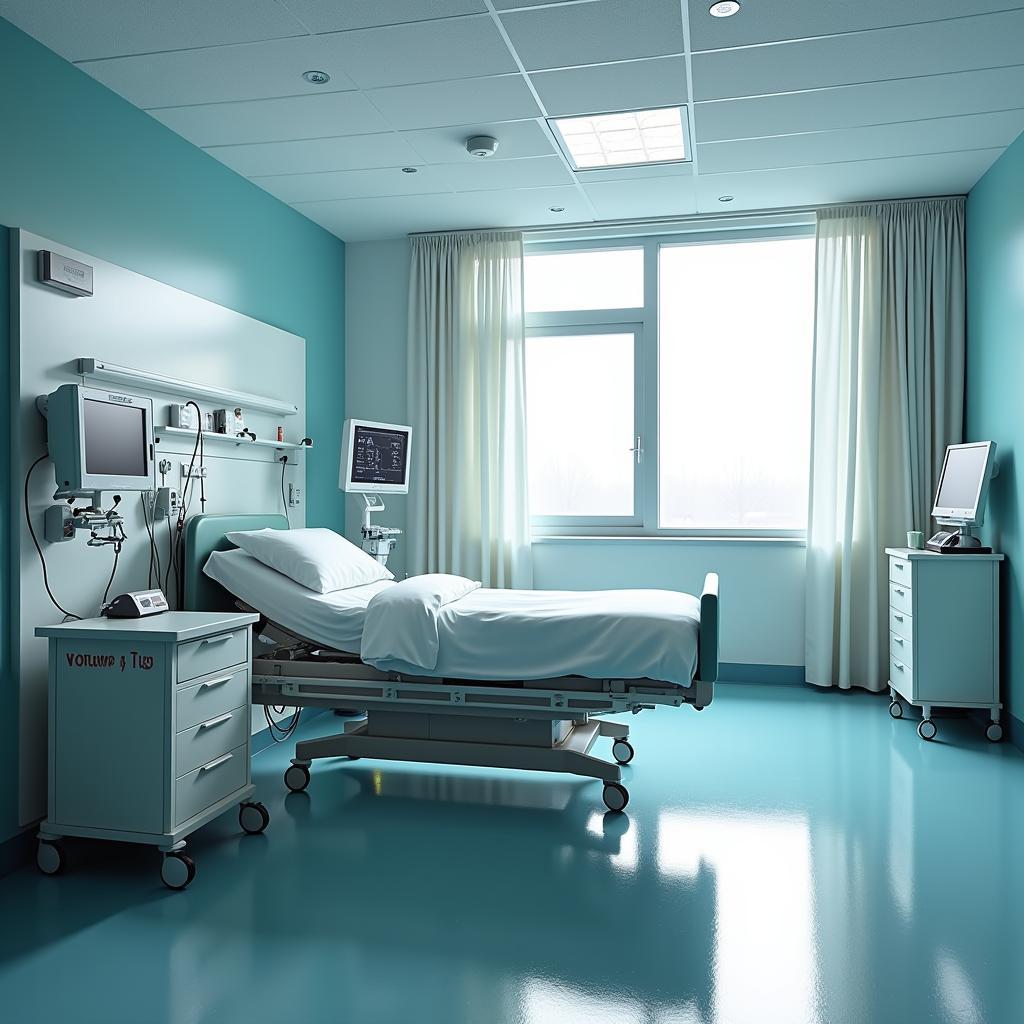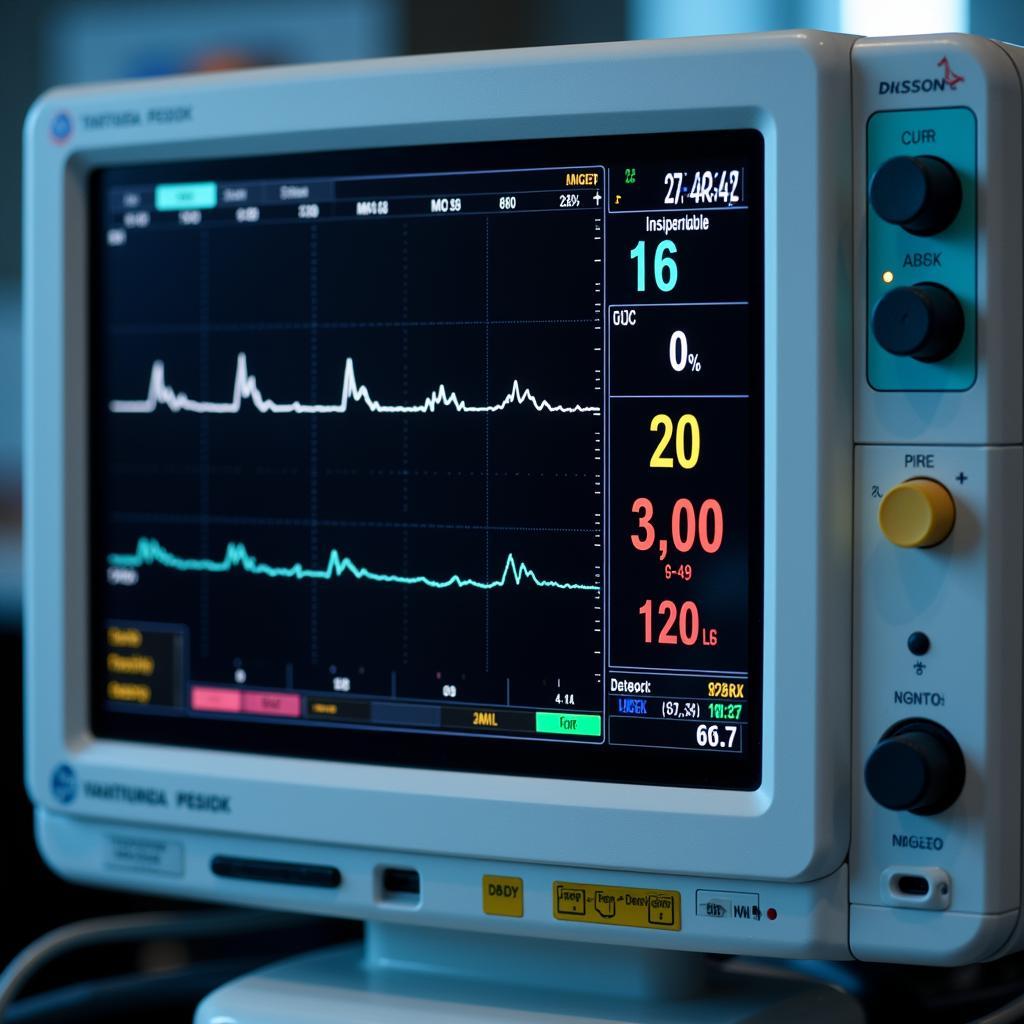A Hospital Ctu, or Cardiac Telemetry Unit, plays a critical role in providing specialized care for patients with various heart conditions. These units are equipped with advanced technology and staffed by skilled healthcare professionals trained to monitor and treat patients experiencing cardiac arrhythmias or those recovering from heart procedures.
What Exactly is a Hospital CTU?
A hospital CTU is a dedicated ward within the hospital designed specifically for the constant monitoring and care of patients with heart conditions.  Hospital CTU Ward Unlike a general ward, a CTU offers a higher level of observation and specialized care for individuals with a higher risk of cardiac events.
Hospital CTU Ward Unlike a general ward, a CTU offers a higher level of observation and specialized care for individuals with a higher risk of cardiac events.
Why is Continuous Monitoring Important?
Patients admitted to a hospital CTU require constant observation of their heart rhythms. This is achieved through continuous electrocardiogram (ECG) monitoring, where electrodes placed on the patient’s chest transmit real-time data to a central monitoring station. This allows the medical team to promptly detect any abnormalities in heart rate or rhythm.  Cardiac Monitoring System in Hospital CTU
Cardiac Monitoring System in Hospital CTU
Who Benefits from a Hospital CTU?
Patients admitted to a hospital CTU often present with a range of cardiac conditions, including:
- Arrhythmias: Irregular heartbeats, such as atrial fibrillation, bradycardia, or tachycardia.
- Heart Attacks: Patients recovering from a heart attack and require close monitoring for complications.
- Heart Failure: Individuals with weakened heart muscles may experience fluid buildup or arrhythmias.
- Post-Heart Surgery: After procedures like bypass surgery or valve replacements, the CTU provides a controlled environment for recovery.
What to Expect in a Hospital CTU
 Patient Receiving Care in a Hospital CTU
Patient Receiving Care in a Hospital CTU
Entering a hospital CTU can feel unfamiliar. Here’s what patients can expect:
- Comfortable Environment: Rooms are designed for patient comfort and often include amenities like televisions and phones.
- Specialized Staff: Nurses in the CTU are specially trained in cardiac care and can quickly respond to emergencies.
- Restricted Activity: Patients are encouraged to rest and avoid strenuous activities to promote healing.
- Regular Tests: Expect blood tests, ECGs, and other diagnostic procedures to monitor your condition.
The Importance of Specialized Care
Hospitals with dedicated CTUs demonstrate a commitment to providing specialized cardiac care. These units are essential for:
- Early Detection: Continuous monitoring allows for the early detection of potentially life-threatening arrhythmias.
- Prompt Intervention: The specialized team can quickly intervene with medications or other therapies to stabilize the patient’s condition.
- Improved Outcomes: The focused care in a CTU contributes to better recovery rates and reduced hospital readmissions for cardiac patients.
Choosing the Right Hospital CTU
When facing a cardiac event or requiring specialized heart care, selecting a hospital with a dedicated CTU is crucial. Factors to consider include:
- Experience and Expertise: Look for a hospital with a strong track record in cardiac care and a team of experienced cardiologists and nurses.
- Advanced Technology: Ensure the CTU utilizes the latest monitoring and diagnostic equipment.
- Patient-Centered Care: Choose a hospital that prioritizes patient comfort and provides clear communication throughout your stay.
In conclusion, a hospital CTU plays a vital role in providing advanced cardiac care. Choosing a hospital with a dedicated CTU can make a significant difference in a patient’s recovery and overall well-being. Remember to research your options and select a facility that aligns with your healthcare needs and preferences.
FAQs about Hospital CTUs
1. How long will I need to stay in a hospital CTU?
The length of stay varies depending on the individual’s condition and response to treatment.
2. Can my family visit me in the CTU?
Most hospitals have specific visiting hours for CTUs. Check with the nursing staff for guidelines.
3. Will I experience any pain or discomfort during monitoring?
ECG monitoring is painless. You may feel a slight tug when the electrodes are removed.
4. What happens if an abnormality is detected on the monitor?
The medical team is alerted immediately and will assess your condition and administer appropriate treatment.
5. What should I do if I am experiencing chest pain or other concerning symptoms?
Alert the nurses immediately so they can assess your situation.
6. Can I continue my regular medications while in the CTU?
Your medications will be reviewed by your doctor, and adjustments may be made as needed.
7. What happens after I am discharged from the CTU?
You will receive instructions for follow-up appointments and any necessary lifestyle modifications.
Need help finding the right care?
Contact us at Phone Number: 02437655121, Email: [email protected] or visit us at 298 Cau Dien Street, Minh Khai, Bac Tu Liem, Hanoi, Vietnam. Our team is available 24/7 to assist you.